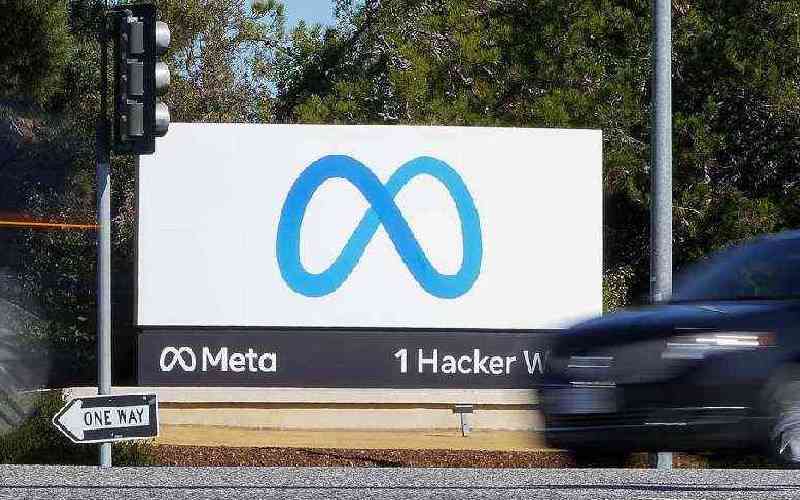
While most entrepreneurs look at giants like Meta and assume their strategies are out of reach, the truth is that the same principles can be scaled down and applied to small and medium-sized businesses.
This isn't theory — it's a repeatable framework. Whether you're running an online store, a SaaS product or a local service business, the strategies Meta uses to dominate can help you achieve weekend sales worth thousands — or even millions — if executed well.
In this article, I'll break down these strategies into clear, actionable steps and illustrate them with real-world examples to help you create your high-ROI (return on investment) campaigns.
Meta didn't build its advertising empire on guesswork. Every dollar spent on ads is optimised for a return. On average, businesses running Facebook and Instagram ads see an 8-12x ROI on every dollar spent.
One thing Meta excels at is hyper-personalisation. Every ad isn't just shown — it's shown to the right person at the right time with the right message.
Take the case of a boutique e-commerce store selling handmade jewellery. They invested $10,000 (Sh1.27 million) in a weekend ad campaign, targeting previous website visitors and cart abandoners. Instead of spraying their ads broadly, they focused on customers who had already shown interest but hadn't completed a purchase.
The result? $125,000 (Sh16.3 million) in sales over 48 hours.
The lesson here is simple:
Start small, target smart: Identify your warm leads (past visitors, email subscribers, cart abandoners).
Use retargeting campaigns: Ads that follow up on previous user behaviour are significantly more effective.
Test multiple ad variations: Meta doesn't rely on one ad — it runs dozens of versions simultaneously and optimises in real-time.
Turning data into dollars
At the core of Meta's success is data. The company processes four petabytes of user data daily, turning raw information into actionable insights. But this isn't exclusive to tech giants — you can replicate it with affordable tools.
For example, a Shopify store owner noticed a 35 per cent cart abandonment rate using Google Analytics. They discovered that customers often dropped off at the shipping details step.
The fix? They removed an unnecessary form field and introduced free weekend shipping. The store generated $75,000 (Sh9.68 million) in additional sales in just one weekend without increasing ad spend.
The power here wasn't just in having data but in acting on it.
Set up analytics tools: Google Analytics, Facebook Pixel or heatmap tools like Hotjar can show you exactly where customers drop off.
Focus on quick wins: Small changes, like simplifying forms or adding one-click checkout options, can yield massive results.
Refine every weekend: Meta doesn't stop testing. Every campaign builds on the last one.
The urgency effect
Why do flash sales work? Because urgency is a psychological trigger. Meta understands this deeply, and many of its ad strategies rely on creating urgency and scarcity.
A small SaaS company launched a "Weekend-Only Lifetime Access Campaign" priced at $299. They didn't just announce the offer — they built excitement.
Friday morning: They teased the deal via an email campaign.
Saturday morning: They launched the sale with a bold "48 Hours Only" banner.
Sunday afternoon: They sent a final reminder email, warning that the sale was ending soon.
The result? $1.2 million in sales over the weekend.
Urgency works because it forces action. To replicate this:
Make it time-sensitive: Limited-time offers push customers to act now, not later.
Use clear CTAs: Words like "Buy Now" or "Limited Time Offer" make the action crystal clear.
Send follow-up reminders: Most purchases during flash sales happen after reminder emails.
Automation: The hidden multiplier
Meta doesn't rely on human teams for every decision — it relies on automation at scale. The beauty of today's technology is that automation isn't just for billion-dollar companies anymore.
Take the example of a fitness coach selling online courses priced at $499 (Sh64,570). Instead of manually handling inquiries, payments and follow-ups, they set up a system:
An AI chatbot handled common questions.
Automated emails nurtured leads who signed up but didn't buy.
Payment systems ensured seamless checkout without friction.
Over one weekend, they sold 2,000-course spots, generating $998,000 (Sh128.74 million) in revenue.
Automation doesn't replace human connection — it amplifies efficiency so you can focus on high-impact decisions.
Use AI for customer support: Chatbots like Tidio or Intercom can resolve inquiries instantly.
Automate payment systems: Stripe and PayPal ensure smooth checkouts.
Schedule marketing ahead of time: Use tools like Mailchimp or Buffer to pre-plan campaigns.
Your million-dollar weekend playbook
If you want to replicate the success of Meta and the case studies we've covered, here's a weekend roadmap to follow:
Thursday: Launch ads targeting your warmest audience (website visitors, subscribers).
Friday morning: Tease your offer via email and social media.
Saturday morning: Launch the main flash sale with clear, urgent messaging.
Sunday morning: Send reminder emails and retarget ad campaigns.
Sunday night: Send a final "last chance" offer email before closing.
Businesses that follow this strategy often see 2-10x ROI on weekend campaigns.
The takeaway: Meta's playbook isn't locked away
Meta's billions aren't a result of luck — they result from data-driven precision, automation and customer psychology. The strategies that drive their revenue are repeatable and scalable for entrepreneurs at any level.
Here's your cheat sheet:
Know your numbers: Track customer behaviour and optimise every touchpoint.
Act with urgency: Time-limited offers drive immediate action.
Automate, automate, automate: Remove bottlenecks from your business processes.
Iterate relentlessly: What worked last weekend might need refinement this weekend.
Meta's success is a framework, not a fluke. The steps are the same whether your goal is $10,000 or $1 million (Sh129 million).
Your million-dollar weekend doesn't start with hope — it begins with execution.
This weekend, don't just run a campaign — run a system.
 The Standard Group Plc is a multi-media organization with investments in media
platforms spanning newspaper print operations, television, radio broadcasting,
digital and online services. The Standard Group is recognized as a leading
multi-media house in Kenya with a key influence in matters of national and
international interest.
The Standard Group Plc is a multi-media organization with investments in media
platforms spanning newspaper print operations, television, radio broadcasting,
digital and online services. The Standard Group is recognized as a leading
multi-media house in Kenya with a key influence in matters of national and
international interest.
 The Standard Group Plc is a multi-media organization with investments in media
platforms spanning newspaper print operations, television, radio broadcasting,
digital and online services. The Standard Group is recognized as a leading
multi-media house in Kenya with a key influence in matters of national and
international interest.
The Standard Group Plc is a multi-media organization with investments in media
platforms spanning newspaper print operations, television, radio broadcasting,
digital and online services. The Standard Group is recognized as a leading
multi-media house in Kenya with a key influence in matters of national and
international interest.










